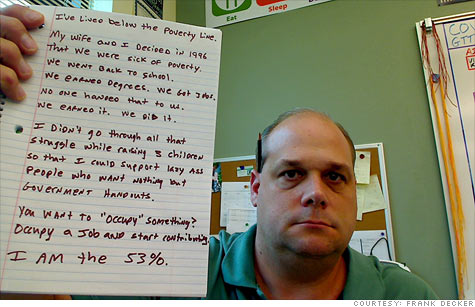John Barryman explains how companies have adapted to life-threatening shopping.
As a precaution to avoid the 2008 incident where someone died, a Wal-mart store in Upland, CA decided to remain open all night to avoid lines and door-rushing. Unfortunately for them, customers began tearing into the shrink-wrapped products that were meant to be open and distributed for sale at 5 AM.
When turned away by employees, they started fighting inside, forcing the Wal-Mart to call police to kick all the customers out and close to clean-up in time for the sale at 5 AM.
The people, naturally, were pissed off, and it seems at that moment, most of them turned into zombies, banging on the glass doors and even eating some brains (not really on that last one). Some got crafty and tried to sneak into the back entrance and the lawn and garden section. Through-out the entire night, there was chanting of "let me in, let me in" and cops had to remain until 6:15 AM.
This coming from one of the store managers trying to calm the crowd, "It was scary." Meaning that crowd could have teared him limb from limb.
The arms race continue to escalate. One woman, evidentially applying lessons learned from the war in Iraq, deployed her offensive capability preemptively. "Moments after a Walmart in Los Angeles opened its doors at 10 p.m., one woman reportedly used pepper spray on at least 20 customers – some of whom were children – to keep them away from the discounted electronics she planned to buy."1
I say to the rest-of-the-world, alien observers, and ancestor spirits, that this is just what happens. It is the unavoidable outcome of incomes so high people can't remember what it's like to think about their own survival, while still too low for every wish automatically manifest via Sphere magic. We are the victims here, victims of our own success. Our government is agile and effective, our roads lead everywhere, and our economy provides for our every need. We have good reason to camp outside of stores for hours; it's the only means we have to improve our lives! John adds, “Here in the U.S., no matter how many civil liberties are denied certain groups, no matter how unhappy people are with their government, what it really takes to get people riled up is 40% off of a DVD set.” I don't know what he's saying on the first two points, but yeah, DVDs!
Our corporate string pullers are to thank. They're so effective at making and marketing widgets they can co-opt entire holiday traditions like Christmas, Valentine's Day, and now Thanksgiving to create this consumer carnival. It is a marvel the way gratitude, love, and Christ have been grossly fashioned into shiny gadgets and greeting cards to create the awesome Frankensteinian cultural creation of Black Friday. Only in America.
I don't recall hearing about Black Friday much until the mid 2000s. It was then that watching obese people squeeze through small entrances, like their own blood cells through plaque-laden arteries, became a guilty pleasure. In those days I still watched evening newscasts, and Black Friday reporting was a seductive mixture of corporate shilling during the lead up and stoic restraint in the aftermath. At first it didn't make sense why news producers feel coverage of the nearby sales serves the public good, nor the on-air talent showed so much restraint while reporting. Watch the corners of the anchor's mouth as he tries not to yell “fuck” during the following report.
You may also have noted the empty look in his eyes as hatred for mankind disintegrates the emotional centers in his brain. It now makes sense now 5 years later, as I too have discovered the way widgets fulfill me. Black Friday is education.
These door stampedes reacquaint adults with lessons learned in school about not running and how to queue. We see the pregnant lady mixing up those childhood drills as priority one is getting her wig back on, later considering getting off her belly. That's stop drop and
It doesn't always turn into a gunfight or stampede. Here's what it looks like when things don't go horribly wrong:
Oh who am I kidding. Still horribly wrong. I can only take this as a critique of an educational system which provides no instruction in asking philosophical questions. If I had my buddy record me while I cackled and grabbed box after box of vibrators, that's what it would mean; it seems like a pretty obvious testament to the vibrator-shaped hole in our souls/intellect. So is this satire, or am I going to be posting videos of the first dirty bomb going off in the parking lot of a Walmart next Black Friday?


 .
. 





